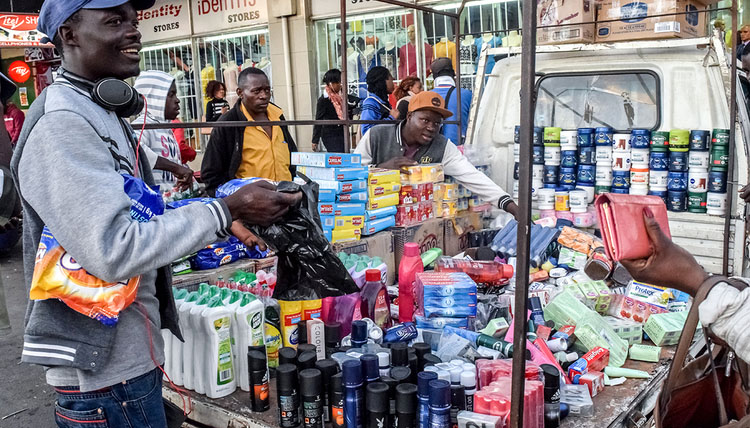
The Sunday Mail

Parliament
Lincoln Towindo
A FORTNIGHT ago, Government announced a far-reaching moratorium on price increases for goods and services, and ordered prices to revert to those obtaining on March 25.
Chairperson of the Inter-Ministerial Committee on Covid-19, Vice President Kembo Mohadi, made the announcement.
He argued that the price increases we have witnessed during the national lockdown were down to speculation and profiteering.
A survey by Government revealed that prices had shot up by as much as 42 percent in the two months to April 11. This may have prompted authorities to act, fearing a further surge in the cost of living and to cushion consumers from rapidly increasing prices.
Since coming into office, President Mnangagwa has insisted that his Government will steer clear of price controls, given the country’s knotty history with official interference in the marketplace.
However, the recent “interference” by Government in the market has prompted fear among some observers who argue that this could mark the beginning of price controls.
On the other hand, however, there is an argument that the intervention was a necessary evil given our history with rent-seeking, speculation and market indiscipline primarily by business.
The price freeze is not Government’s first attempt to manage market indiscipline bordering on profiteering by business.
Last year, Government announced plans to open People’s Shops, where fairly priced goods could be bought by the ordinary man.
Earlier this year, it was announced that Garrison Shops would be established to cushion members of the security services from rampaging prices and profiteering.
Granted, pricing in Zimbabwe has an unhealthy relationship with foreign exchange rate movements, a puzzle that has become more complex with the introduction of the local unit.
The source of concern with the local marketplace is that it is, in effect, an ill-regulated space where the laws of the jungle apply.
Consequently, consumers have borne the brunt of this skewed market and continue to suffer the effects of unfair trade practices, overpricing and extortion among many other ills. The coronavirus pandemic has only served to worsen this plight given the closing down of large sections of the economy. How many times have we been asked by a supplier that in order to purchase a specific product we must purchase any other particular product from that same supplier, however unrelated the two are?
We have shops that smugly display —“break it, consider it sold” signs —expounding a consumer’s liability for any loss or damage of goods or products incurred as a result of any conduct of the consumer.
Zimbabwean shops have a multi-tier pricing regime for different payment methods, which consumers accept as “normal”.
In some cases, prices of goods are not displayed on the shelves, one only discovers how much an item costs at the till point.
We have retailers who withhold delivered goods in anticipation of movements in the foreign exchange rates.
Retailers mislead consumers about the quality of their goods and deliveries are never on time.
We have suppliers who accept payment knowing full well that they are unable to supply goods or services as a result of insufficient stock or incapacity to render a service.
Most of the products we buy are not subject to warranty.
Some shops have “no returns or refunds” policies. Prices are charged on the whim of the supplier and are not a function of industry-wide profit margin matrix.
Many will be surprised to learn that President Mnangagwa signed into law the Consumer Protection Act (CPA) in December last year, which effectively deals with these maladies.
The CPA is a sweeping piece of legislation that provides safeguards to consumers against all forms of malpractice by business including all those mentioned above. In terms of the law, aggrieved consumers can approach the courts for redress or refer their complaints to the Consumer Protection Commission. Sadly, the commission is yet to be operationalised, nearly five months after the law came into effect.
Crucially, unfair pricing now attracts a level five fine or imprisonment for a period not exceeding three months, or both.
Further, consumers are also now entitled to be fully refunded for defective or sub-standard goods.
The law provides for a fanged bulldog to protect consumers.
What is disconcerting, however, is that we have not seen this law being put into use, almost five months after promulgation.
Instead, Government has sought to negotiate with the very same characters they accuse of profiteering.
To make matters worse, many businesses have not heeded the moratorium and continue to hike prices as they please. Why have we not seen Government throwing the book at the offenders? Surely, they are breaking the law.
Does this mean that a law that took Parliament three odd years to craft is only good for display in our statute books?
What use then is Parliament’s legislative role when we do not use these laws to address what ails our society?



